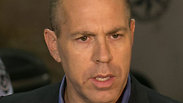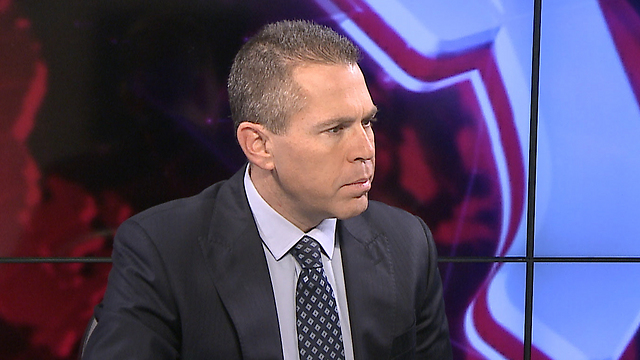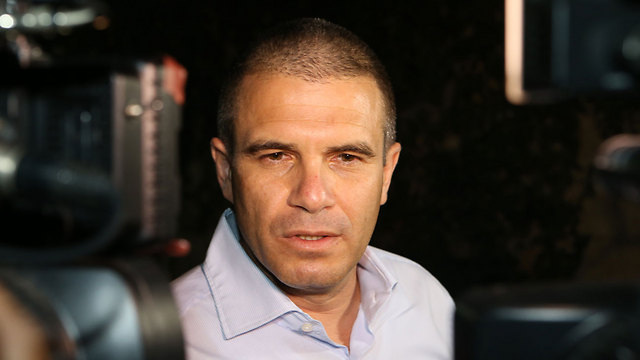
Erdan defends Hirsch appointment: An injustice has been done to him
Public security minister praises former IDF commander, dismissing criticism from high-ranked police officers: 'Hirsch knows the police from his previous roles. Let us not forget that in Israel, the police operates differently than in other countries because terrorism and rioting are main part of police operations.'
Public Security Minister Gilad Erdan on Wednesday defended his decision to appoint Brig.-Gen. (res.) Gal Hirsch as the new police commissioner amid rising criticism of the appointment from both inside and outside the Israel Police.
"My responsibility is to look for the person who, as I see it, has the biggest chance to make changes," Erdan said at the Ynet studio on Wednesday morning.
"I heard from objective individuals who said he (Hirsch) acted properly and professionally (during the Second Lebanon War), and the problem was higher up the ladder with policies ect. - I will surely not disqualify a commander like that," Erdan continued. "I don't look at the rank, but at the person, his qualities and experience."
Dismissing criticism from inside the police that it would be better to appoint someone from within police ranks, the public security minister claimed that "Hirsch knows the police from his previous roles. He commanded operations in which the police took part, and let us not forget that in Israel, the police operates differently than in other countries because the issues of terrorism and rioting are a main field of operations."
Erdan said that since his release from the IDF, Hirsch has worked with Rafael Advanced Defense Systems and intelligence agencies, and that "he would bring these abilities and knowledge to the Israel Police. I believe he will upgrade the police's abilities and introduce what's missing in it today."
Erdan dismissed claims that appointing someone from outside police ranks is a vote of no confidence in the Israel Police.
"The Israel Police is made of worthy people, and each of them could be a commissioner. But eventually I can only choose one and I need to assess who has the biggest chance to make a change. I thought the model of bringing a commander from outside is the most appropriate at this time. Whether that will continue being true in the future - I'm not sure."
The appointment was also harshly criticized by bereaved families of soldiers killed during the Second Lebanon War, who view Hirsch as responsible for the death of their sons.
"I won't argue with bereaved families and will always bow my head to them," Erdan said. "I heard from Winograd, Eisenkot and Ya'alon, who valued Hirsh as a division commander who, unfortunately, did not receive any backing from (then-IDF chief) Halutz at the time. I was convinced a great injustice was done to him. I shouldn't disqualify him because of that injustice."
Hirsch's conduct came under scrutiny by the government-appointed Winograd Commission investigating the failures of the Second Lebanon War, as well as an internal army investigative commission headed by Maj.-Gen. (res.) Doron Almog.
"There was one report by Maj.-Gen. (res.) Doron Almog, that was harsh, but at the hearing with the chief of staff and in the Winograd report, things seemed completely different," Erdan said. "So I don't think he's controversial. I won't rule out a brave fighter like that because of an injustice done to him in the past. I shouldn't perpetuate the injustice done to Hirsch. He has all of the qualities to bring out-of-the-box thinking to the table."
Erdan said his meetings with Hirsch convinced him that Hirsch was the right man for the job. "I noticed he had a great hunger to succeed and devote himself to the mission. It was one of the things that impressed me immensely and convinced me he was right for the job," he said.
The Likud minister refused, however, to elaborate on his conversation with Prime Minister Benjamin Netanyahu about the appointment. "I think it is the prime minister's right and perhaps even his duty to get to know and study candidates for such an important role like the police commissioner. And still, the prime minister didn't know Hirsch before. I take responsibility for the appointment, I brought him in," he said.












